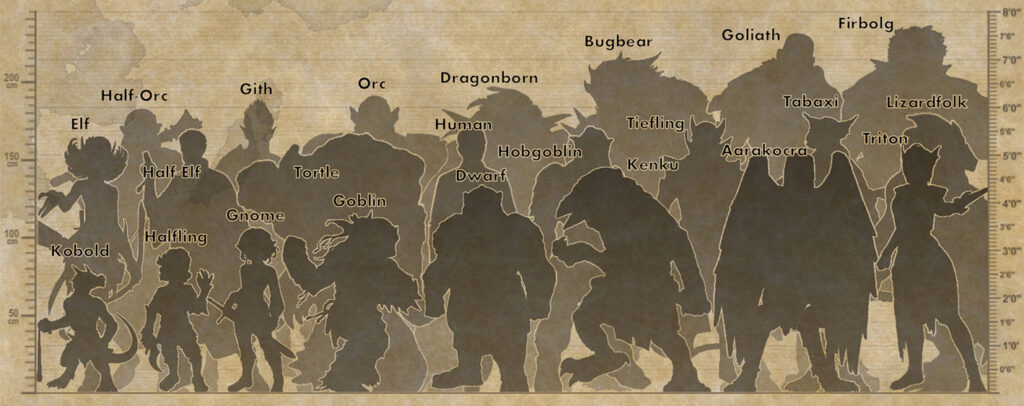The Character
Character CreationAbility Checks
Herbalism
Hit Points
Inspiration
Languages
Multiclassing
Skills
Skills, Combat
The Character
The first step when playing is to create a character. All classes and folk can be found in the navigation bar.

-
Character Creation
When creating a character, follow these steps.
Roll a Random Folk. You character is born as a sort of folk. This will grant some features and decide which background tables to use.
Generate Background. Unless you have a specific background in mind, use the background tables to generate the events of your life before starting the adventure.
Roll Traits. Roll two (or more) traits in addition to any that were granted during background generation.
Select Background Skills. While generating your background, you will receive skills appropriate for the events in your life. If you get less than three skills (four for humans), you can select additional appropriate skills so that you have that amount. Additionally you always gain the appropriate Culture skill (unless living as a hermit or similar). Skills found in the Background skills section on the skills page, are only available at this time.
Gain Fate Power. Roll a random Fate power. If you start at first level you gain two Fate points which are used to activate your power. At higher levels you start with one fate point. Whenever you gain an increase in your proficiency modifier, you also gain a Fate point.
Folk Features. Gain features from your type of folk.
Generate Ability Scores. Generate ability scores by rolling 4d6 and choosing three of the dice. After each roll, assign the score to one of your abilities. When you have rolled and assigned the first four ability scores you can choose to either continue rolling the last two as well, or assign an 8 and a 15 to the last ability scores.
Roll a Luck Score. In addition to the six basic abilities you also have a seventh, Luck. Your Luck is generated by rolling 3d6.
Languages. Determine the proficiency level for each language you know as follows: One language you choose will be your primary language (level 5). You get a number of points equal to 3 times the number of languages you received in your background, modified by your Intelligence modifier. You may spend these points on your known languages as you wish.
Starting Money. When starting play, your character starts with 1d20 gp, 1d20 sp and 1d20 cp, modified by your social status.
Select Class and Archetype. Your choice will grant you starting skill points, which can be spent on your class skills, starting equipment and level on features. You start first level with a hit point maximum equal to the highest roll of your hit die, modified by your Constitution modifier.
Level Up. If you start as a higher level character, you get one skill point per character level above first.
-
Ability Checks
The three main rolls of the game — the ability check, the saving throw, and the attack roll — rely on your ability scores. Roll a d20, add an ability modifier derived from one of the six ability scores, and compare the total to a target number.
If you are proficient with the saving throw, the weapon you are attacking with or the appropriate skill while making an ability check, additionally add your proficiency bonus.
-
Herbalism
-
Hit points
You start first level with a hit point maximum equal to the highest roll of your hit die, modified by your Constitution modifier.
When you roll for hit points at higher levels, if you roll a 1 you may reroll the die and must use the new roll.
-
Inspiration
You can hold up to 3 inspiration points at once. When making an ability check, you can spend a die after you see result to reroll. For other rolls, you have to spend the dice before the roll in order to gain advantage on the roll.
-
Languages
-
Multiclassing
-
Skills
-
Skills, combat